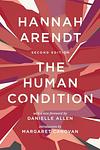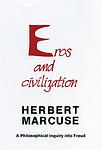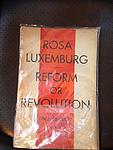The Greatest German "Political" Books of All Time
Click to learn how this list is calculated.
This list represents a comprehensive and trusted collection of the greatest books. Developed through a specialized algorithm, it brings together 305 'best of' book lists to form a definitive guide to the world's most acclaimed books. For those interested in how these books are chosen, additional details can be found on the rankings page.
Genres
The "Political" category of books encompasses works that explore the theory, practice, and history of government and politics. These books may cover topics such as political ideologies, political systems, political institutions, political movements, and political leaders. They may also examine the relationship between politics and other areas of society, such as economics, culture, and international relations. Political books can be both informative and thought-provoking, offering readers insights into the complexities of the political world and the challenges of governing in a democratic society.
Countries
Date Range
Reading Statistics
Click the button below to see how many of these books you've read!
Download
If you're interested in downloading this list as a CSV file for use in a spreadsheet application, you can easily do so by clicking the button below. Please note that to ensure a manageable file size and faster download, the CSV will include details for only the first 500 books.
Download-
26. Oriental Despotism by Karl August Wittfogel
"Oriental Despotism" presents a theory that ancient bureaucratic societies, particularly those in Asia, developed as a result of the need to manage large-scale irrigation systems. The author argues that the control of water resources in arid regions led to the creation of centralized, autocratic power structures, which he terms "hydraulic despotisms." These governments wielded significant control over their subjects, as the management and distribution of water was crucial for agriculture and survival. The book explores how this form of governance influenced the political and social structures of various Eastern civilizations, contrasting them with Western societies that developed under different ecological conditions.
The 5517th Greatest Book of All Time -
27. The Human Condition by Hannah Arendt
The book in question is a philosophical examination of the nature of human activities: labor, work, and action, and their fundamental role in the fabric of society. The author delves into the historical development of these activities, distinguishing them from one another and exploring their transformation in the modern age. The text critically reflects on the decline of the public realm and the rise of the private, the impact of automation on human purpose, and the loss of meaningful political action in contemporary life. The work is a profound inquiry into the ways in which human beings interact with the world, each other, and themselves, ultimately seeking to understand the conditions under which individuals live, act, and establish their presence in the world.
The 5517th Greatest Book of All Time -
28. Eros And Civilization by Herbert Marcuse
"Eros and Civilization" is a seminal work in critical theory that explores the interplay between societal structures and human desires. The book argues that the progress of civilization has necessitated the repression of basic human instincts and desires, as dictated by the performance principle governing capitalist societies, which prioritizes productivity and control over pleasure. Drawing on Freudian psychoanalysis, the author proposes the possibility of a non-repressive society where pleasure and work can coexist harmoniously. This work challenges traditional notions of utility and rationality in modern industrial societies, advocating for a liberation of human desires through aesthetic and libidinal expressions that could lead to a more fulfilling existence.
The 5517th Greatest Book of All Time -
29. Behemoth by Franz Neumann
"Behemoth" is a comprehensive analysis of the structure and practice of National Socialism in Germany from its rise to its peak during World War II. The book delves into the political, economic, and social frameworks that defined the Nazi regime, arguing that it represented a new form of totalitarianism marked by chaotic governance, industrial monopolies, and the fusion of state and party under despotic rule. The author critically examines how these elements led to aggressive expansionism and the systematic extermination of Jews and other minorities, ultimately asserting that the regime's inherent contradictions contributed to its downfall.
The 5517th Greatest Book of All Time -
30. History And Class Consciousness by Georg Lukacs
"History and Class Consciousness" explores the philosophical and political implications of Marxism. The book delves into the concept of reification, where human relations and social structures are perceived as immutable laws, obscuring the true dynamic social processes. It emphasizes the importance of class consciousness, arguing that the proletariat's awareness of its role and conditions is crucial for revolutionary change. The work critically examines the limitations of traditional Marxist theory, particularly in its economic determinism, and advocates for a more dialectical approach to understanding and transforming society. Through this, it seeks to reinvigorate Marxist theory by focusing on the subjective capabilities of the working class to change the social and economic landscapes.
The 5517th Greatest Book of All Time -
31. Reform Or Revolution? by Rosa Luxemburg
"Reform or Revolution?" is a pivotal work that critiques the revisionist approach to socialism, advocating instead for revolutionary methods as the necessary means to achieve the goals of socialism. The author argues against the belief that gradual reforms through existing capitalist institutions can lead to socialism, positing that these reforms are inherently limited and incapable of dismantling capitalist structures. The text emphasizes the necessity of a complete overthrow of the capitalist system to pave the way for genuine socialist governance, critiquing contemporary socialist movements that favor reform and cautioning against the dilution of socialist ideals.
The 5517th Greatest Book of All Time -
32. Success: Three Years in the Life of a Province by Lion Feuchtwanger
"Success: Three Years in the Life of a Province" is a historical novel that provides a vivid account of life in Bavaria during the Weimar Republic, from 1926 to 1929. The narrative portrays the political, social, and economic struggles of the time, weaving together the lives of three main characters: an art dealer, a poet, and a conservative veteran. The book is a critical exploration of the rise of Nazism, the decadence of the bourgeoisie, and the power of art and culture.
The 7168th Greatest Book of All Time -
33. Essays in Sociology by Max Weber
This book is a collection of essays that delve into the intricate aspects of sociology. The author explores the role of politics, religion, and economics in shaping society while also examining the influence of bureaucracy and charisma on leadership. It also provides comprehensive insights into the theory of social action, the nature of social relationships, and the concept of ideal types. This book is a significant contribution to understanding the complexities of social structures and human behavior.
The 7960th Greatest Book of All Time
Reading Statistics
Click the button below to see how many of these books you've read!
Download
If you're interested in downloading this list as a CSV file for use in a spreadsheet application, you can easily do so by clicking the button below. Please note that to ensure a manageable file size and faster download, the CSV will include details for only the first 500 books.
Download





